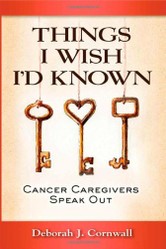There may be numbness, weakness, and visual loss when someone experiences a TIA. The person may also have dizziness, double vision, impairment of speech, and loss of balance when he or she walks. Swallowing difficulty is also a possibility. Additionally, there may be facial and upper extremity weakness. Loss of vision in one-half of the visual fields in these clients is well-known to neurologists [1, 2].
With the myriad of clinical signs and symptoms or complications that may afflict these individuals, it is clear to physicians that these presentations stem from some part of the brain which has a relation with those occurrences [1].
The clinician will assess vascular risk factors as these provide clues to the medical team about management of the patient. Of especial interest will be whether the patient has atrial fibrillation on the electrocardiogram as well as hyperlipidemia [1].
As is the case with many diseases, it is possible to reduce the risk of their occurrence with lifestyle change. Specifically, these include smoking cessation, dietary modification, and physical exercise with approval from the health care provider. One can also lower the risk of these episodes with limitation of alcohol intake. Management of diabetes mellitus is also essential for these patients [1].
Of great importance is early diagnosis of high blood pressure when it occurs and regular medical care [1, 2].
There are also benefits from surgical procedures for these patients. Specifically, stenting and endarterectomy are methods to ameliorate the flow of blood to the human brain [1].
In any event, one must understand that the risk of stroke is 20 percent within 90 days of a TIA occurrence.




 The Reality of Aspirinon 05/24/2021
The Reality of Aspirinon 05/24/2021
 An Old Microbeon 03/31/2021
An Old Microbeon 03/31/2021
 Coronavirus and Mental Illnesson 02/14/2021
Coronavirus and Mental Illnesson 02/14/2021
 Acute Ischemic Strokeon 12/25/2020
Acute Ischemic Strokeon 12/25/2020


Comments
Thanks.
My late mother-in-law suffered a transient ischemic attack some months ere she died [well over a year ago now.] During the attack the doctor present thought that she was speaking gibberish, but my wife recognized that her mother had reverted to Irish. Doctors should learn from this experience.